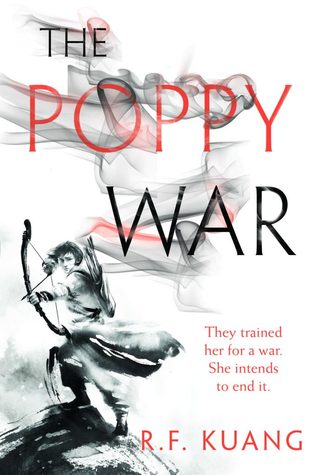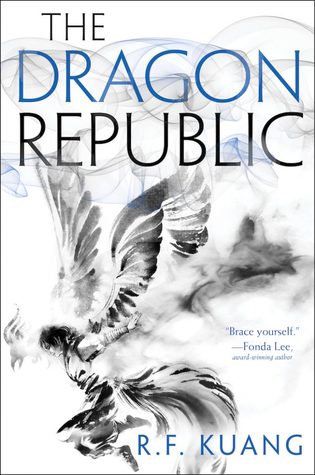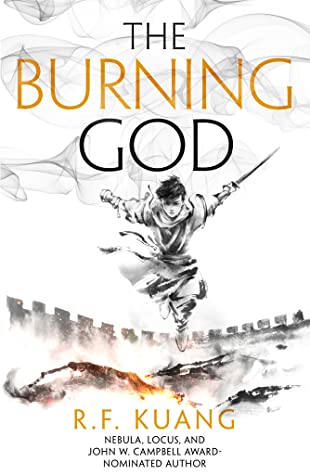"The Poppy War" (books 1-3) review
Overview
Title: The Poppy War
Author: R. F. Kuang
Subgenre: Historical fiction
2021 Bingo squares:
- Book 1: Set in Asia, A-Z guide, Cat squasher, Debut author
- Book 2: Set in Asia, Cat squasher
- Book 3: Set in Asia, Revenge, Cat squasher
Recommend: Yes, if you are ok with a lot of brutal violence and want a plot-centric war novel
Stars: 4/5
Review
The Poppy War trilogy will always have a special place in my heart because it’s the trilogy that got me back into reading fantasy. Someone copied an entire page or two from the first novel into a thread of the worst opening lines in fantasy and I suddenly wanted to read more, and four days later I’d finished the trilogy.

Anyway, the first novel, The Poppy War, is a thinly-disguised history lesson about the second Sino-Japanese war. You are therefore obligated to read the Wikipedia page and learn the actual history after reading the book. Books two and three follow the Chinese Civil War. There’s a good blog post here about the historical inspiration behind The Poppy War, and you can read that post as well as the related Wikipedia articles; I really do encourage you to make an effort to learn at least a bit of the history if you don’t know it already, because R. F. Kuang’s background as an academic is in Chinese studies, and so learning about Chinese history is respecting her goal as an author. (I’m assuming if you’re reading my blog that you, like me, had a western education that didn’t teach Chinese history.)
Okay, enough about history.

From its title, you can expect that drugs and drug use is a significant theme in The Poppy War (assume I’m referring to the entire trilogy when I use that name unless I say otherwise). Multiple characters experience addiction and withdrawal symptoms, and whether drugs are inherently good or bad is discussed at multiple times. Opium is also viewed from the more dispassionate, pragmatic lens of economy: it’s a valuable crop. It comes up a lot.
Prose in the entire series is pretty direct - not amazing, not bad. There’s a lot of cursing, and unlike some fantasy novels, which invent curse words for the sake of worldbuilding, in The Poppy War the author just uses “fuck” and “clusterfuck” a lot. Some people may appreciate this directness; I personally found it distracting.
The magic of The Poppy War is fleshed out more in later books, but does appear starting in the first novel. Without going into too much detail, there’s a pantheon of gods, each of which confers a different ability. It’s never a super specifically delineated magic system, but it also never feels overpowered - magic feels limited by rules of the world implicitly, even if we don’t really know what the boundaries are.
Characterization is secondary to the plot; for the most part, characters are there just to move the plot along, and this remains the case for all three books. As for the plot, books 1 and 3 are the strongest, while book 2 drags a bit. If you want, book 1 can be read as a standalone, and then if you decide you want to continue the series, you can read the next two, and if not, you can stop there and have reached a satisfying enough conclusion.

